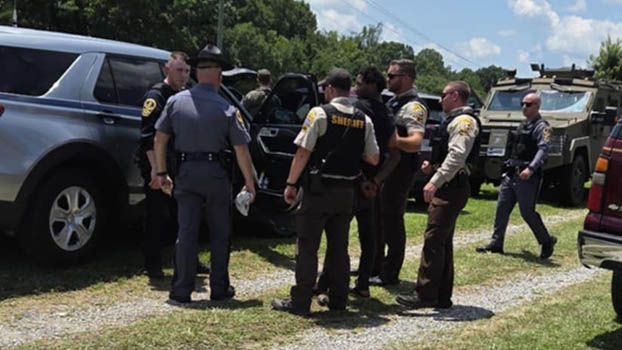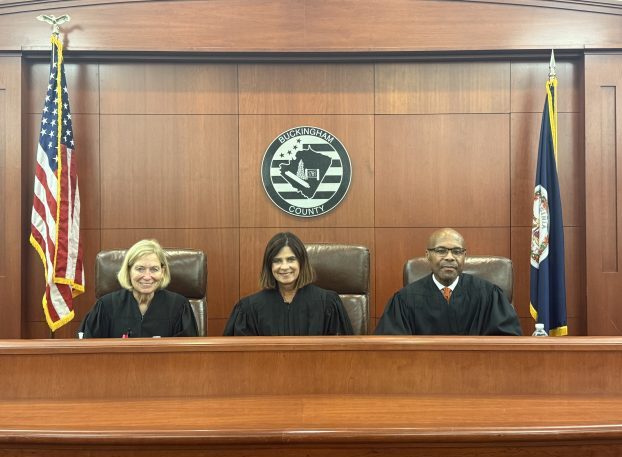Your turn — A win for life
Published 1:15 pm Wednesday, June 29, 2022
|
Getting your Trinity Audio player ready...
|
Last week, the U.S. Supreme Court issued its decision in Dobbs v. Jackson Women’s Health Organization, and it did not mince words. The court stated that the constitution does not confer a right to abortion; Roe and Casey were overruled and the authority to regulate abortion is returned to the people and their elected representatives.
This ruling overturned two previous cases that had found a Constitutional right to an abortion, Roe v. Wade and Planned Parenthood v. Casey.
Roe found a right to privacy in the Constitution, which facilitated a right to an abortion. Casey held that the right to an abortion was in the 14th amendment via the due process clause.
Dobbs says neither are the case: “The Constitution does not confer a right to abortion.”
The ruling is 6-to-3 and appears to be almost identical to the leaked version from earlier this year.
Justice Alito wrote the opinion, with Thomas, Gorsuch, Kavanaugh and Barrett joining. Thomas and Kavanaugh filed concurring opinions, and Chief Justice Roberts filed a concurring opinion. Justices Breyer, Sotomayor, and Kagan dissented.
Alito’s opinion takes Roe and Casey apart, point by point, and demonstrates how both decisions were based on a bad reading of law and history, going back to English common law.
“The inescapable conclusion is that a right to abortion is not deeply rooted in the nation’s history and traditions,” Alito wrote. “On the contrary, an unbroken tradition of prohibiting abortion on pain of criminal punishment persisted from the earliest days of the common law until 1973.”
Plaintiffs in the case told the court there was no middle ground – either the court had to overturn Mississippi’s anti-abortion law, or overturn Roe and Casey. The court agreed.
With this ruling, restrictions imposed by courts on abortion laws based on those two decisions are no longer valid.
This means that the U.S. Constitution is silent on the issue of abortion, leaving the matter to state legislatures and their constitutions to sort out, or for Congress to act in exercise of its enumerated powers.
While other states have “tripwire” laws that make abortion illegal once Roe is overturned, or explicitly allow abortion in their codes or constitutions, Virginia’s abortion restrictions rely on neither.
Said simply, in Virginia, nothing has changed.
WHAT’S NEXT FOR VIRGINIA?
This decision is a sea change in federal jurisprudence and moves the front lines in the fight over abortion from the confirmation of new justices in the U.S. Senate to the floor of the House of Delegates.
Virginians are united on the most basic principles regarding abortion: all of us want fewer abortions.
This decision doesn’t change the law in Virginia, but it does open the door for the General Assembly to enact safeguards and restrictions that have broad public support.
The vast majority of Virginians agree that third trimester abortion should be illegal in all but the most extenuating circumstances.
Yet just three years ago, Virginia Democrats attempted to legalize abortion until the very moment of birth, which is outrageous.
Even so, there is broad agreement that abortion shouldn’t be allowed after a baby is able to live outside the womb, and that women should have all the relevant information they need to make an informed decision.
That’s one reason the Democratic measure was soundly defeated.
None of these common-sense measures, no matter how broadly supported, would be possible if Roe and Casey had not been overturned.
The end of Roe is an opportunity for us to do what Virginians elected us to do – sit down together and work to find answers to incredibly difficult and emotional questions.
Life is a precious gift from God, and I will always support the right to life.
DEL. TOMMY WRIGHT can be reached via email at DelTWright@House.Virginia.gov or (804) 698-1061.





